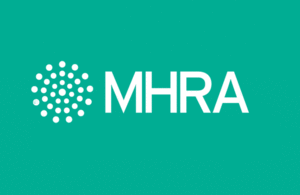New restrictions introduced on sales of stimulant laxatives to counter risks from overuse
People who take stimulant laxatives for constipation are being advised that these will now be sold in smaller packs, with on-pack warnings.

The Medicines and Healthcare products Regulatory Agency (MHRA) has taken action to reduce abuse and overuse of these products, and new packs will begin to appear in stores over the summer. Additional label warnings make clear that stimulant laxatives do not help with weight loss.
Anyone with regular bouts of constipation is advised against the long overuse of stimulant laxatives (including products containing bisacodyl, senna or sodium picosulfate) which can result in damage to the digestive system, including chronic constipation and damage to the nerves and muscles of the colon.
Instead, they should talk to a healthcare professional, who will provide advice, first on trying alternatives, such as diet and lifestyle changes, but also on switching to other products such as bulk laxatives, which work in the same way as fibre to increase the bulk of stools.
Parents and carers can talk to a pharmacist about treatment of short-term constipation in children over 12. However, they should seek advice from a prescriber such as their GP if the child is younger than 12 years or they are worried about their child’s health.
Dr Sarah Branch, Director of MHRA’s Vigilance and Risk Management of Medicines Division, said:
Stimulant laxatives can provide short-term relief to some people with occasional constipation, and most people use these medicines safely. However, there is evidence of misuse by people with eating disorders, and of long-term use by the elderly, as well as inappropriate use in children.
Patient safety is our highest priority. We believe these new measures are necessary to address the risks associated with misuse, while continuing to allow safe and appropriate access to these medicines without prescription to treat short-term constipation.
Sandra Gidley, President of Royal Pharmaceutical Society, said:
Misusing laxatives can have a serious impact on the health of patients and the new risk minimisation measures will improve patient safety. We’re pleased to have worked with the MHRA on new guidance for community pharmacists and their teams so they can give patients the best advice.
As experts in medicines, pharmacists are well placed to help ensure patients do not overuse stimulant laxatives. If a patient has a question about different laxative products or are unsure about what they are currently taking, the pharmacy team will be able to help and signpost on if necessary.
Rebecca Willgress, Beat Eating Disorders Charity Head of Communications, said:
We welcome the news that the sale of laxatives will be more tightly controlled, and will come with increased warnings against overuse.
Laxatives can prove attractive for people affected by eating disorders, but also have the potential to cause serious health problems. Our own 2014 survey on sufferers who abused laxatives found that nearly all had bought laxatives over the counter, and 66.7% said they had developed a dependency on them.
We hope that these new regulations will make it more difficult for people who are unwell to obtain laxatives, as well as help to educate the wider public on the dangers of abusing them.
The new guidelines have been introduced following a review into the safety of these medicines. The review, by the Commission on Human Medicines (CHM), was prompted by concerns regarding the overuse and misuse of stimulant laxatives by patients with eating disorders, overuse in the elderly and use in children without medical supervision.
Additional warnings regarding the risk of overuse and making clear that these products do not help in weight loss are being added to packs.
The new guidelines restrict the use of stimulant laxatives sold in retail outlets to patients over the age of 18. Pharmacists will be able to sell stimulant laxatives for use in children aged 12 and over.
Anyone experiencing a side effect through use of a stimulant laxative, or any other medical product, should report this to the MHRA through the Yellow Card scheme
Ends
Notes to Editor
-
Medicines and Healthcare products Regulatory Agency (MHRA) is responsible for regulating all medicines and medical devices in the UK by ensuring they work and are acceptably safe. Underpinning all our work lies robust and fact-based judgements to ensure that the benefits justify any risks. The MHRA is a centre of the Medicines and Healthcare Products Regulatory Agency which also includes the National Institute for Biological Standards and Control (NIBSC) and the Clinical Practice Research Datalink (CPRD). The MHRA is an executive agency of the Department of Health
-
Stimulant laxatives work by stimulating the muscles that line your gut, helping them to move stools along the back passage.13.9 million packs were sold in the UK in 2016 and approximately 1 million of these were prescribed.
-
Stimulant laxative medicines available in the UK over-the-counter are bisacodyl (such as Dulcolax), senna and sennosides (such as Senokot), and sodium picosulfate (such as Dulcolax Pico).
Media enquiries
News centre
MHRA10 South Colonnade
London
E14 4PU
Email newscentre@mhra.gov.uk
Telephone (including out of hours): 020 3080 7651